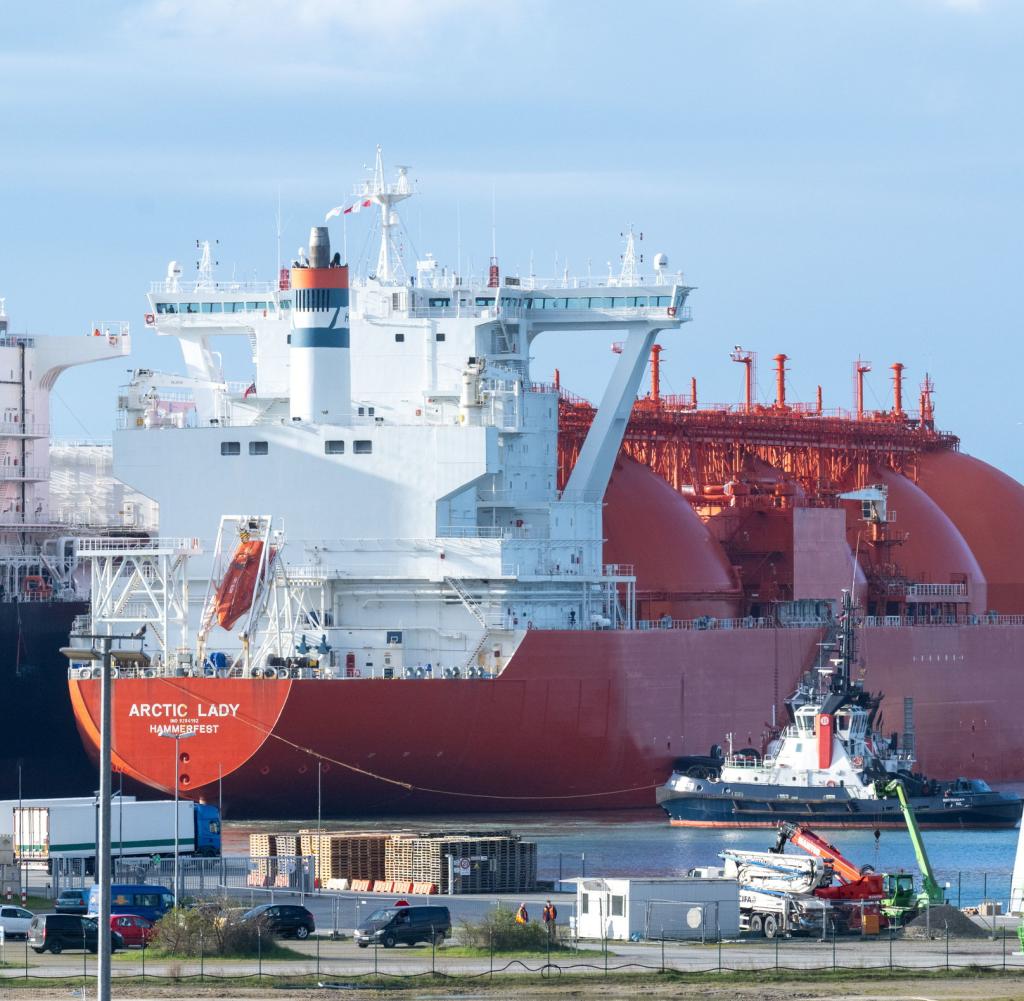The urgent applications by the municipality of Binz, the German Youth Hostel Association and two private property owners against the operation of the liquid gas terminal on Rügen in the port of Mukran have failed. The Federal Administrative Court in Leipzig declared them inadmissible on Friday. The safety risks claimed were not identifiable.
The terminal consists of two floating facilities for storing and regasifying liquefied natural gas (LNG), a tanker and other facilities on land. According to the federal government’s plans, it is intended to help secure Germany’s energy supply. Mecklenburg-Western Pomerania approved the operation in April.
The municipality of Binz, the youth hostel association and the property owners lodged an objection with the authorities, but a decision has not yet been made. They wanted to ensure that this objection has a suspensive effect before the Federal Administrative Court, meaning that the terminal does not go into operation for the time being. But they were unsuccessful in this. Lawsuits can only be brought in Leipzig once a decision has been made on the objection to the permit.
The court explained that potential protected objects such as the applicants’ homes, the Prora youth hostel or areas to be built on in Binz were far outside the appropriate safety distance. They were all more than a kilometer away. The urgent applications also did not make clear the far-reaching effects of possible incidents in the port area.
The operator of the terminal, Deutsche Regas, told the AFP news agency on Friday that the terminal was currently “in the process of being commissioned”. The permit is valid until the end of 2043.
The LNG plant off Rügen has been controversial for some time. The municipality of Binz has warned several times of “horrendous damage” to tourism, nature and the climate. It argues that the terminal is no longer necessary to secure energy supplies in Germany in winter.
In April, the Federal Administrative Court had already dismissed the lawsuits of two environmental organizations against the gas pipeline from Mukran to Lubmin, which connects the floating LNG terminals to the gas pipeline network.




